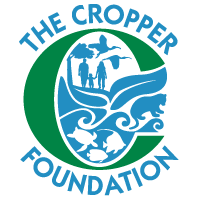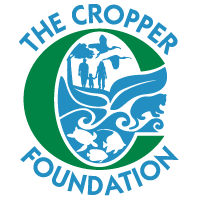Do You Know the Most Important Factors to Check for When Buying Fresh Produce?
When buying fresh produce at the supermarket, consumers can be quite selective. They turn over tomatoes to check for blemishes, scan a head of lettuce for holes and scrutinise the shape and symmetry of each bell pepper. There are, however, factors invisible to the naked eye, that should command more attention. The presence of harmful bacteria and pesticide residues are the two most overlooked, yet consequential factors, that should influence decision-making.

Consumers Examine Physical Appearance of Bell Peppers
Around the world, some consumers are starting to catch on and niche industries are forming to serve their needs. One such industry, is that of organic produce.
Can Produce Grown in T&T Be Certified Organic?
As food safety awareness grows, the demand for ‘organic’ produce, grown without the use of artificial chemicals, increases in equal measure. Certification programmes that help guide conscious consumers to products which: cycle resources, promote ecological balance, and conserve biodiversity; should naturally follow suit. In Trinidad & Tobago however, there is currently no way to certify locally grown produce as ‘organic.’ The criteria for organic certification programmes internationally require rigorous monitoring and lab testing from certifying bodies using well established systems that are currently not available in Trinidad and Tobago. The cost and logistics alone would deter any local producer from attempting to become certified as organic through an international programme. Armed with this knowledge, the natural question any health and eco-conscious consumer would ask as they shop locally, is how to ensure the produce they select at the grocery has been certified safe.

Look for GSCP Seal at the Back of Local Produce Packaging
GSCP Seal Means Your Produce is Certified Safe
This very dilemma inspired the creation of the Grown Safe Certification Programme (GSCP), which allows for a special ‘GSCP’ seal to be placed on packaging of produce certified safe for consumption. GSCP certified farmers receive rigorous training on safe pesticide usage and sanitation which is complimented by periodic laboratory testing on their produce to ensure that international ‘Codex Alimentarius’ standards, set by the Food and Agriculture Organisation of the United Nations (FAO) and the World Health Organisation (WHO), are being upheld. This oversight is especially important because pesticide residue found in vegetables has been linked to respiratory ailments and certain cancers. Additionally, the GSCP seal assures consumers of raw vegetables that dangerous bacteria like E. Coli, Salmonella and Staphylococcus aureus are not present – a very important point to consider next time you prepare a fresh salad.
GSCP Certified Produce is Sustainably Farmed
The GSCP seal also provides assurance that environmentally sustainable farming practices are being applied. On most farms, pesticides are used to increase efficiency, boost yield and improve appearance by eliminating insects that feast on crops. Inversely, the misuse of pesticides can lead to degradation of soil quality, contamination of water ways and population decline for crucial pollinators like bees. GSCP aims to disincentive irresponsible pesticide application by facilitating small scale farmers’ access to premium markets as a reward for engaging in more sustainable farming practices.

GSCP Registered Farmer Shows Off Lettuce During Site Visit
GSCP Seal: The First of its Kind in Trinidad & Tobago
The GSCP certification is a pilot programme developed as part of the ‘Making Agriculture Profitable and Sustainable’ project which is being implemented by The Cropper Foundation in collaboration with several state, multilateral, private sector and civil society organisations. The National Agricultural Marketing and Development Corporation (NAMDEVCO) facilitates field monitoring of GSCP registered farmers to ensure crop production guidelines are followed; The Inter-American Institute for Cooperation on Agriculture (IICA) oversees and structures the training programme for GSCP based on the voluntary food production guidelines of GAP (Good Agricultural Practices); The Caribbean Industrial Research Institute (CARIRI) in conjunction with international laboratories, facilitates the testing for pesticide residues and microbial bacteria. This initiative was made possible through funding from the Inter-American Development Bank (IDB Lab).
In order to test consumer reception to the GSCP programme, the project required the creation of a brand of fresh locally grown produce that would be available for sale at easily accessible locations throughout Trinidad & Tobago. With this in mind, the brand ‘GROW’ was created and a partnership was formed with Massy Stores to facilitate sales. As the project remains in the pilot phase, the newly launched brand of local produce called GROW is the only GSCP certified product on the market so far and steps are being taken to encourage more small-scale farmers to become certified through the programme, so that a wider variety of brands can carry the GSCP seal.

GSCP Certified Fresh Produce from GROW is Sold at Massy Stores
GROW produce, is currently available for sale at nine branches of Massy Stores located along the East-West Corridor and will expand to include more locations in Trinidad and Tobago as time progresses. Since launching in March, 2020, GROW has offered lettuce supplied by GSCP certified small-scale farmers. In the near future, GROW the brand has plans to expand its offerings to include pak choi, tomatoes, kale, spinach, sweet peppers, broccoli and more. Of course, all future GROW produce offerings will also be supplied by GSCP certified farmers, which consumers can verify by checking the packaging for the GSCP seal.
To learn more about the GSCP seal and certification visit: https: https://gscptt.com/
To learn more about GROW the brand visit: https://growtt.com/
Byline: Zico Cozier – Communications Officer for the Cropper Foundation


